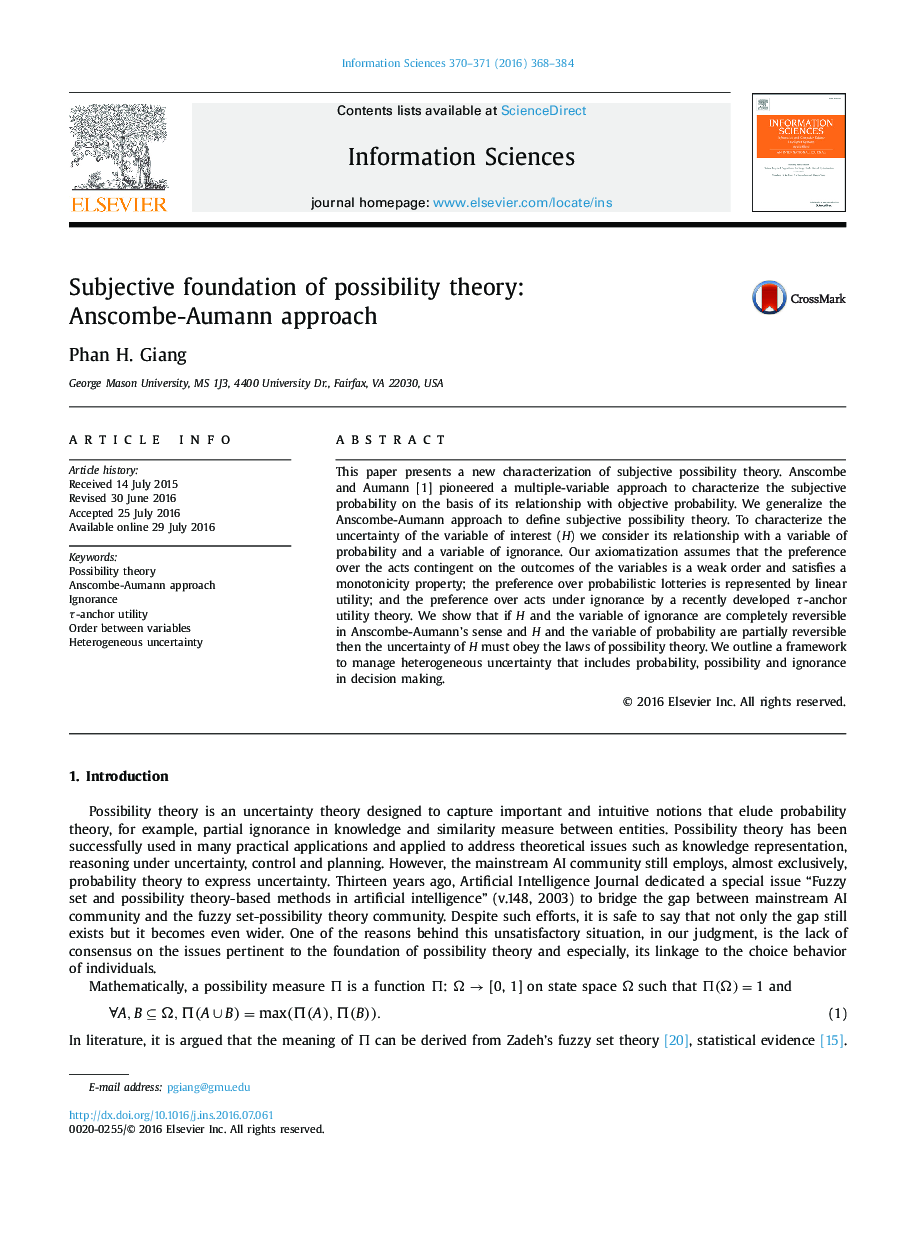| Article ID | Journal | Published Year | Pages | File Type |
|---|---|---|---|---|
| 6857059 | Information Sciences | 2016 | 17 Pages |
Abstract
This paper presents a new characterization of subjective possibility theory. Anscombe and Aumann [1] pioneered a multiple-variable approach to characterize the subjective probability on the basis of its relationship with objective probability. We generalize the Anscombe-Aumann approach to define subjective possibility theory. To characterize the uncertainty of the variable of interest (H) we consider its relationship with a variable of probability and a variable of ignorance. Our axiomatization assumes that the preference over the acts contingent on the outcomes of the variables is a weak order and satisfies a monotonicity property; the preference over probabilistic lotteries is represented by linear utility; and the preference over acts under ignorance by a recently developed Ï-anchor utility theory. We show that if H and the variable of ignorance are completely reversible in Anscombe-Aumann's sense and H and the variable of probability are partially reversible then the uncertainty of H must obey the laws of possibility theory. We outline a framework to manage heterogeneous uncertainty that includes probability, possibility and ignorance in decision making.
Keywords
Related Topics
Physical Sciences and Engineering
Computer Science
Artificial Intelligence
Authors
Phan H. Giang,
